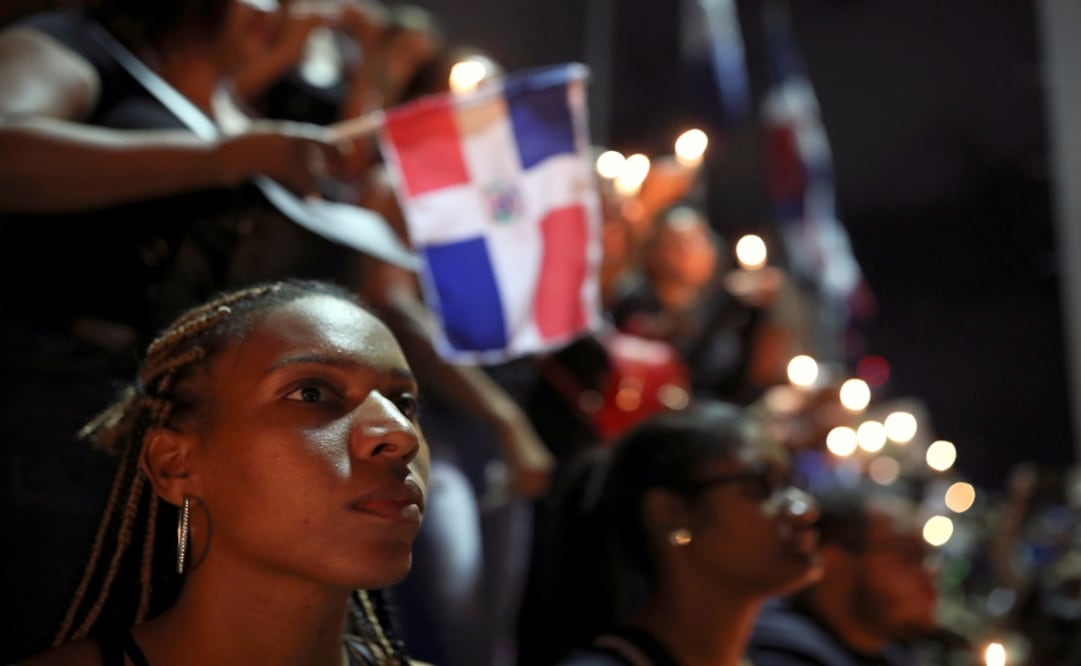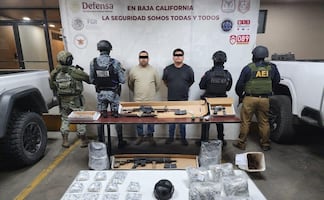A popular movement ―similar to the protests against the governments and neoliberal policies in Chile , Colombia , and other Latin American countries―has taken the streets in the Dominican Republic , after the February 16 municipal elections were suspended amid accusations of fraud , vote-buying , and manipulation of public resources .
While the process has been rescheduled for March 15 by the Central Electoral Board ( JCE ), it is necessary to highlight its relevance since it was considered a prelude to the May 17, 2020, general election in the Caribbean country in order to elect a president , vice-president , 32 senators , and 190 deputies , marking the end of the period headed by current President Danilo Medina Sánchez , who is ineligible to stand for re-election after two consecutive terms started eight years ago.
It is the second process since the 1994 general elections where all public officials will be elected simultaneously, and the first in Dominican history in which all its authorities will be elected simultaneously and directly.
However, the road to the polls for nearly seven and a half million citizens was marred by numerous irregularities .
Delegates from 12 opposition parties met on February 12 with the Organization of American States ( OAS ) observer mission, led by former Chilean President Eduardo Frei , to denounce the “abusive use of public funds” by the Santo Domingo government to capture votes for the ruling Dominican Liberation Party ( PLD ), who controls 107 of the 158 municipalities.
According to the electoral law, during the 40 days prior to municipal elections, it is forbidden to inaugurate public works or deliver goods from the Presidency Social Assistance Plan , which recently embarked on a controversial series of procurement and contracting procedures for goods and services.
In the same vein, Presidency Social Assistance Plan director Iris Guaba called her followers to attack outspoken journalist Huchi Lora in a WhatsApp audio , after he urged people to take what the program is giving because it is part of what the government collects in taxes.
In yet another incident on the eve of elections, senator and businessman Amable Aristy Castro , from the Reformist Liberal Party , was videotaped distributing cash to youngsters in the eastern La Altagracia province , where his daughter Karina Aristy is running for re-election as mayor of local capital Higüey .
Finally, on election day tens of polling stations reported delays and technical problems two hours after its opening at 7:00 local time, especially with the new electronic voting system .
Opposition leaders complained of manipulation, and the elimination of candidates and parties in the ballots, as well as less than 20% of polling stations, working appropriately, prompting JCE head Julio César Castaños Guzmán to announce the suspension of the process .
Major offenses
While the protest movement was gaining momentum in the streets of Santo Domingo , Santiago de los Caballeros , and other cities besides the Dominican communities in the United States , Europe , and Latin America , Castaños Guzmán declared that the only way to avoid a crisis is a “political trial for major offenses” in the Chamber of Deputies.
Several observers, including Dominican political analyst Juan Carlos Espinal , have stressed that the opposition must denounce before the United Nations the “civilian-military electoral coup” undertaken by the government with support from the PLD , the corporate sector, the church, and the OAS; in a communiqué , the regional body announced that it will conduct an audit “with the same technical quality standards and professional rigor, just as it happened recently in Bolivia , in order to define responsibilities.”
The OAS added that “until this moment, there is no evidence to indicate fraudulent handling of the electronic voting system ,” used in 1,772 of the total 16,032 polling stations.
On the contrary, former president and People’s Power ( FP ) coalition presidential candidate Leonel Fernández Reyna has remarked that what really happened was a flagrant offense against Dominican democracy . “More than a fortuitous case, it was a failed attempt at fraud based on automated voting . The alleged mistake, for its part, was nothing more than the criminal plot that was revealed,” he said.
Fernández remembered that the JCE never fulfilled its own agreements to implement the electronic voting system adopted last year. The software used for the first time in the October 6 primary elections , he noted, was designed by inexperienced JCE personnel rather than a specialized company according to international standards; in addition, authorities rejected the proposal to conduct a manual count of physical receipts deposited at the ballot box.
The former president, who led the country from 1996 to 2000 and from 2004 to 2012, is trailing in the polls Modern Revolutionary Party ( PRM ) social-democratic candidate Luis Abinader Corona for the May 17 general elections , although last year he broke with the PLD. Interestingly, this month his wife Margarita Cedeño was chosen running mate for PLD’s presidential candidate , Gonzalo Castillo Terrero .
In this context, independent journalist Ariel Fornari told EL UNIVERSAL in English that the #ProtestaRD movement rapidly expanded from middle-class youths, and upscale millennials, currently representing “a cross-section of all socioeconomic strata. It is open knowledge that some lower rank political figures have attended the protests , yet no high political figures from the opposition, based on the request by the youths to not mix with a movement that occupies a historic protagonism belonging exclusively to civil society.”
Fornari explained that the pots-and-pans protests “are the vanguard of an increasingly alert Dominican society , which suspects that the PLD was attempting to steal the elections by allowing JCE personnel to manipulate the automated voting system , especially since some JCE computer technicians were seen by opposition delegates approaching the JCE facilities on the night before the elections.”
He noted that the government has begun to resort to provocations against the activists gathered in Santo Domingo’s Plaza de la Bandera , as well as to psychological operations probably launched by officials inspired by Brazilian Joao Santana , who worked as main advisor for Medina’s re-election campaign and resulted arrested with his wife Mónica Moura in the South American country three years ago, under charges of bribes related to the Odebrecht scandal .
In exchange for a lesser sentence and the return of USD $21.6 million , the Santanas signed a deal of denunciation with attorneys from the Lava Jato operation , revealing illegal payments for campaigns in Brazil , Venezuela , Angola , Panama , and El Salvador .
The Brazilian engineering company Odebrecht built in the Dominican Republic , among other expensive public works, the Punta Catalina coal-fired power plant , at the center of a graft scandal that amounts to nearly USD $92 million .
Editing by Sofía Danis
More by Gabriel Moyssen
Noticias según tus intereses
[Publicidad]
[Publicidad]














